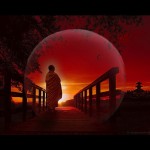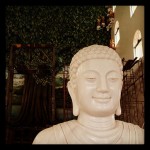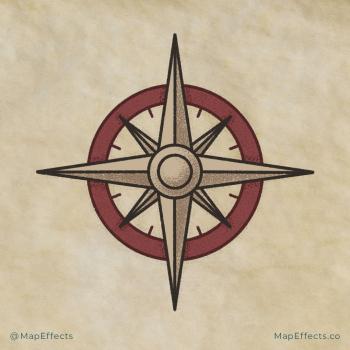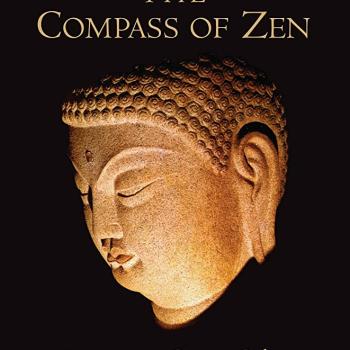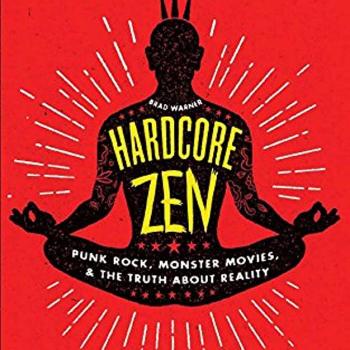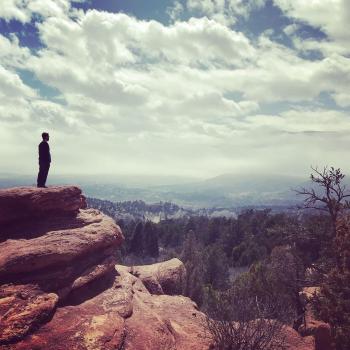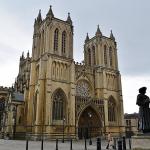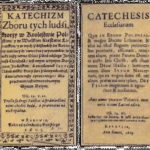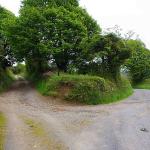The words of the Buddha are like a bow, the words of the masters are like a string. The Buddha taught a Dharma of the one taste of suchness. When the one taste of suchness disappears, the teachings of the masters appear. It’s said that “The tree in the garden” can’t be found, even in the greatest sutras.
“Like a bow” means stretchy, able to adapt to different circumstances. “Like a string” means straightforward, direct and easy to understand. The taste of suchness is the experience of Enlightenment. “The tree in the garden” refers to a famous koan. It’s a riddle that’s supposed to engage our intuitive minds. It goes like this:
A monk asked Zhaozhou why Bodhidharma came to China.
Zhaozhou said: “An oak tree in the garden.”
Sounds pretty silly. Bodhidharma is the one who is credited with taking the Meditation School from India and delivering it to China. So, in a sense, the monk is asking, “Why did Buddhism come to China?” and the master Zhaozhou is telling him it doesn’t matter, pay attention to what’s here.
Reality isn’t found in sutras. It’s right here with us. We just have to open our eyes to see it.
11. To understand the teachings of the Buddha is to understand the difference between these two teachings: 1) your mind, at it’s core, never changes. 2) the form of your mind changes all the time due to causes and conditions. We should see how the two gates of Sudden Enlightenment and Gradual Cultivation are both the beginning and the end of our journey. We must, at some point, put the sutras aside and meditate with one-pointedness. Only this will penetrate our delusions and reveal our true nature. This is how you jump out of the burning house.
There’s a lot to unpack here and it seems paradoxical at first. Our true nature never changes, but our minds are changing all the time, just like our bodies and everything else in the world. Everything is impermanent. That’s one of the Buddha’s key teachings. I like to think of our true nature as the sky and of everything else; our fixations, views, delusions, judgments, etc. as the clouds. The sky is always there, up above everything. The world of suffering is said to be like a burning house. We want to get out. But we only get out by becoming who we really are. And we only do that by stepping outside of who we thought we were.
12. In Zen practice focus on live words, not dead ones.
I was surprised So Sahn thought of this during his time. It’s definitely quite relevant today. It can be tempting to get caught up in philosophy, to focus on teachings that don’t mean much in the modern world. But all that really matters is this: do these teachings help? Dead words are things we can study and memorize that don’t really mean anything to us. I apply this to some of the teachings about rebirth. To me rebirth makes no sense in our modern world, so I don’t spend a lot of time thinking about it.
13. Meditate with total determination, like your life depends on it. Only with Great Determination can you penetrate Great Doubt.
We have to be diligent. Those who only practice a little are not likely to get very far. We have to be determined to get on the cushion and to stay there.
14. There are three essential things in your practice. They are: Great Faith, Great Determination, and Great Doubt. If any of these are missing, practice is like a table missing a leg.
These are called the three essentials of Zen practice. They are considered some of the greatest and most important virtues.
They are great faith, great doubt, and great determination.
Great faith means having faith in our mind’s ability to recognize our Buddha Nature. This is clearly very different from what other religions usually mean when they suggest that we should have faith.
It is holding on to the belief that the Buddha nature is present within us.
Great doubt is like the scientific method. It means don’t believe in anything unless we can demonstrate the truth for ourselves. All of our beliefs should be examined and re-examined often. Beliefs should be accepted or rejected based on our judgment. Any ideas that are found to be unhelpful, should be rejected.
In Zen we do not follow our religious teachers and leaders blindly. We check every belief against our own knowledge and experience.
It’s about having a healthy amount of skepticism. It might seem like great doubt and great faith are at odds.
Great determination is a firm resolution to go forward in our practice. It’s about staying on the path and avoiding discouragement. It’s about cultivating patience and self-discipline.
Zen is not always easy and it’s important to remember that there are no shortcuts.
15. Contemplate the Dharma even in the midst of daily life. Contemplate the koan: “Why did Zhaozhou say that a dog has no Buddha Nature?” Reasoning and knowledge will be cut off and you’ll see things as they are.
This is another koan reference. This is the koan:
A monk asked Zhaozhou Congshen, a Chinese Zen master “Has a dog Buddha-nature or not?” Zhaozhou answered, “Wú” (in Japanese it’s Mu)
Some people say that Wu means No. But it actually means Nothingness. Zhaozhou in that koan is rejecting the question. Because everything has Buddha Nature. You, me, a dog, Zhaozhou, everything. A lot has been written about this koan.
No is a gateway into the Meditation School. It’s supposed to help us destroy our confusion and false understanding. The true face of the Buddha is Nothingness. But why did he say that? Why didn’t he just tell the monk it was a silly question? Or say yes?
I don’t know. So Sahn is asking us to think about that.
16. When you contemplate the koan, don’t try to answer it. Just follow the question. When you get to the place thought can’t enter, your mind will have nowhere to go.
Sometimes Zen teachings are paradoxical and seem to make no sense. That’s something the Zen tradition gets criticized for, at times. So Sahn is telling us there’s a purpose to that. The point is to put the logical mind into a trap that we can only get out of by using intuition. If we dwell in this question about the dog long enough, our true nature can break free for a little while.


